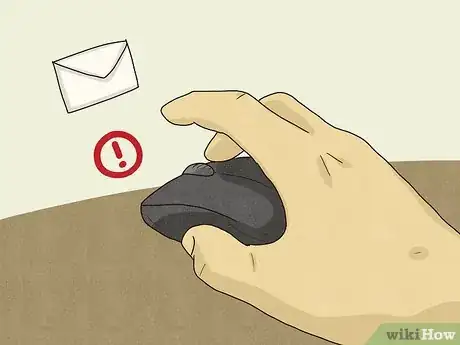This article was co-authored by Cameron Gibson, R.C.C. and by wikiHow staff writer, Megaera Lorenz, PhD. Cameron Gibson is a Registered Clinical Counsellor in Vancouver, British Columbia. Cameron specializes in working with men to support their struggles with anxiety, depression, trauma, OCD, and developmental disabilities. He holds a BA in Psychology from Carleton University and an MA in Counseling Psychology from the City University of Seattle. Cameron is also the Program Director for Manifest Wellness, a men's mental health clinic, where he works to destigmatize mental health support for men and increase access to counseling.
There are 7 references cited in this article, which can be found at the bottom of the page.
This article has been viewed 57,742 times.
Having an enemy can be infuriating. When there’s a not-so-special someone in your life who knows exactly how to push all your hot buttons, you might be tempted look for ways to fight back or get revenge. But the best way to defeat them is to be the bigger person—and not give them the satisfaction of getting to you. In this article, we’ll talk you through a few of the best ways to deal with your enemy without stooping to their level.
Steps
Expert Q&A
-
QuestionWhy do people bully?
 Cameron Gibson, R.C.C.Cameron Gibson is a Registered Clinical Counsellor in Vancouver, British Columbia. Cameron specializes in working with men to support their struggles with anxiety, depression, trauma, OCD, and developmental disabilities. He holds a BA in Psychology from Carleton University and an MA in Counseling Psychology from the City University of Seattle. Cameron is also the Program Director for Manifest Wellness, a men's mental health clinic, where he works to destigmatize mental health support for men and increase access to counseling.
Cameron Gibson, R.C.C.Cameron Gibson is a Registered Clinical Counsellor in Vancouver, British Columbia. Cameron specializes in working with men to support their struggles with anxiety, depression, trauma, OCD, and developmental disabilities. He holds a BA in Psychology from Carleton University and an MA in Counseling Psychology from the City University of Seattle. Cameron is also the Program Director for Manifest Wellness, a men's mental health clinic, where he works to destigmatize mental health support for men and increase access to counseling.
Registered Clinical Counsellor & Program Director Bullying is all about power dynamics and is typically based on insecurity. Bullies try to destabilize others because they feel uncomfortable in their own skin, and they want to make other people feel uncomfortable, too.
Bullying is all about power dynamics and is typically based on insecurity. Bullies try to destabilize others because they feel uncomfortable in their own skin, and they want to make other people feel uncomfortable, too.
References
- ↑ https://www.psychologytoday.com/us/blog/the-couch/201702/6-smarter-ways-deal-bully
- ↑ Cameron Gibson, R.C.C.. Registered Clinical Counsellor & Program Director. Expert Interview. 10 February 2021.
- ↑ Cameron Gibson, R.C.C.. Registered Clinical Counsellor & Program Director. Expert Interview. 10 February 2021.
- ↑ https://www.cbsnews.com/news/why-you-should-stop-ignoring-that-bully/
- ↑ https://www.psychologytoday.com/us/blog/the-couch/201702/6-smarter-ways-deal-bully
- ↑ https://ccnmtl.columbia.edu/services/dropoff/china_civ_temp/week05/pdfs/artofwar.pdf
- ↑ https://www.cnn.com/2019/09/20/health/adult-bully-survivor-tips-wellness/index.html
- ↑ https://ccnmtl.columbia.edu/services/dropoff/china_civ_temp/week05/pdfs/artofwar.pdf
- ↑ https://www.cnn.com/2019/09/20/health/adult-bully-survivor-tips-wellness/index.html
- ↑ Cameron Gibson, R.C.C.. Registered Clinical Counsellor & Program Director. Expert Interview. 10 February 2021.
- ↑ https://www.psychologytoday.com/us/blog/the-couch/201702/6-smarter-ways-deal-bully
- ↑ https://www.cnn.com/2019/09/20/health/adult-bully-survivor-tips-wellness/index.html
- ↑ Cameron Gibson, R.C.C.. Registered Clinical Counsellor & Program Director. Expert Interview. 10 February 2021.
- ↑ https://www.psychologytoday.com/us/blog/the-couch/201702/6-smarter-ways-deal-bully
- ↑ https://www.entrepreneur.com/article/308567
- ↑ https://www.entrepreneur.com/article/308567
- ↑ https://www.psychologytoday.com/us/blog/the-urban-scientist/201003/how-spot-friends-enemies-frenemies-and-bullies
- ↑ https://ccnmtl.columbia.edu/services/dropoff/china_civ_temp/week05/pdfs/artofwar.pdf




































































